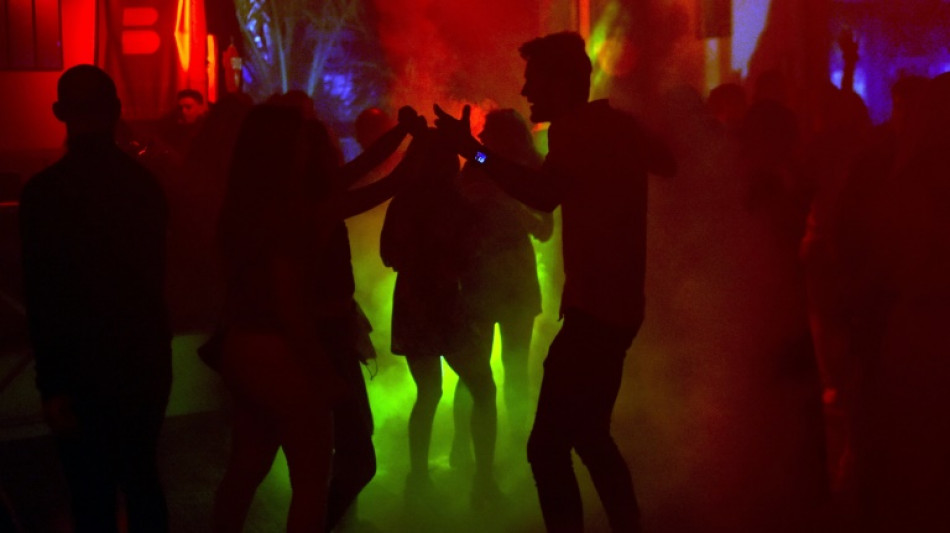
-
 Pianist to perform London musical marathon
Pianist to perform London musical marathon
-
India's Bumrah, Mandhana win top Wisden cricket awards

-
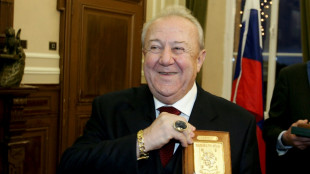 Zurab Tsereteli, whose monumental works won over Russian elites, dies aged 91
Zurab Tsereteli, whose monumental works won over Russian elites, dies aged 91
-
Roche says will invest $50 bn in US, as tariff war uncertainty swells

-
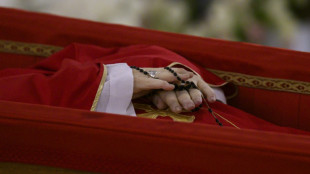 Pope Francis's funeral set for Saturday, world leaders expected
Pope Francis's funeral set for Saturday, world leaders expected
-
US official asserts Trump's agenda in tariff-hit Southeast Asia
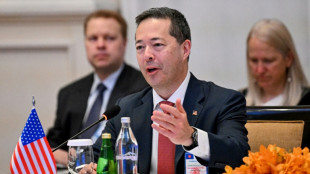
-
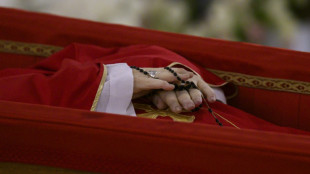 World leaders set to attend Francis's funeral as cardinals gather
World leaders set to attend Francis's funeral as cardinals gather
-
Gold hits record, stocks mixed as Trump fuels Fed fears
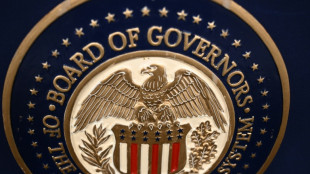
-
 Roche says will invest $50 bn in US over next five years
Roche says will invest $50 bn in US over next five years
-
Fleeing Pakistan, Afghans rebuild from nothing

-
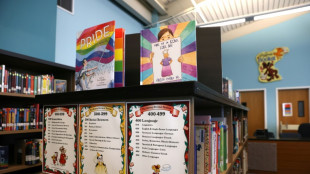 US Supreme Court to hear case against LGBTQ books in schools
US Supreme Court to hear case against LGBTQ books in schools
-
Pistons snap NBA playoff skid, vintage Leonard leads Clippers

-
 Migrants mourn pope who fought for their rights
Migrants mourn pope who fought for their rights
-
Duplantis kicks off Diamond League amid Johnson-led changing landscape
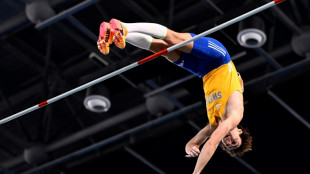
-
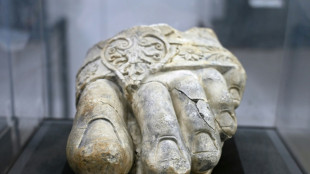 Taliban change tune towards Afghan heritage sites
Taliban change tune towards Afghan heritage sites
-
Kosovo's 'hidden Catholics' baptised as Pope Francis mourned
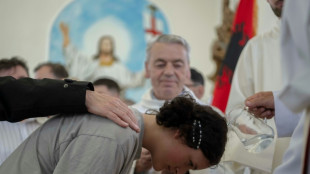
-
 Global warming is a security threat and armies must adapt: experts
Global warming is a security threat and armies must adapt: experts
-
Can Europe's richest family turn Paris into a city of football rivals?

-
 Climate campaigners praise a cool pope
Climate campaigners praise a cool pope
-
As world mourns, cardinals prepare pope's funeral
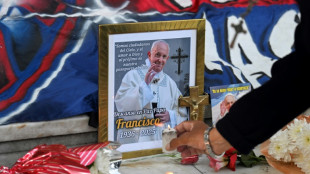
-
 US to impose new duties on solar imports from Southeast Asia
US to impose new duties on solar imports from Southeast Asia
-
Draft NZ law seeks 'biological' definition of man, woman
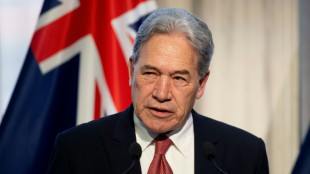
-
 Auto Shanghai to showcase electric competition at sector's new frontier
Auto Shanghai to showcase electric competition at sector's new frontier
-
Tentative tree planting 'decades overdue' in sweltering Athens

-
 Indonesia food plan risks 'world's largest' deforestation
Indonesia food plan risks 'world's largest' deforestation
-
Gold hits record, stocks slip as Trump fuels Fed fears
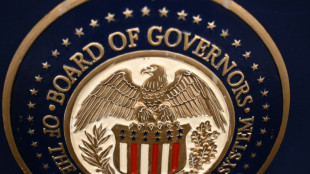
-
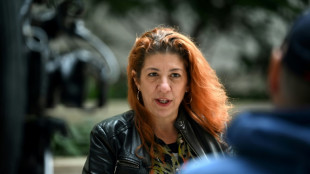 Trump helps enflame anti-LGBTQ feeling from Hungary to Romania
Trump helps enflame anti-LGBTQ feeling from Hungary to Romania
-
Woe is the pinata, a casualty of Trump trade war

-
 'Like orphans': Argentina mourns loss of papal son
'Like orphans': Argentina mourns loss of papal son
-
Trump tariffs torch chances of meeting with China's Xi

-
 X rival Bluesky adds blue checks for trusted accounts
X rival Bluesky adds blue checks for trusted accounts
-
China to launch new crewed mission into space this week

-
 Morocco volunteers on Sahara clean-up mission
Morocco volunteers on Sahara clean-up mission
-
Latin America fondly farewells its first pontiff

-
 'I wanted it to work': Ukrainians disappointed by Easter truce
'I wanted it to work': Ukrainians disappointed by Easter truce
-
Harvard sues Trump over US federal funding cuts

-
 'One isn't born a saint': School nuns remember Pope Francis as a boy
'One isn't born a saint': School nuns remember Pope Francis as a boy
-
Battling Forest see off Spurs to boost Champions League hopes

-
 'I don't miss tennis' says Nadal
'I don't miss tennis' says Nadal
-
Biles 'not so sure' about competing at Los Angeles Olympics

-
 Gang-ravaged Haiti nearing 'point of no return', UN warns
Gang-ravaged Haiti nearing 'point of no return', UN warns
-
US assets slump again as Trump sharpens attack on Fed chief

-
 Forest see off Spurs to boost Champions League hopes
Forest see off Spurs to boost Champions League hopes
-
Trump says Pope Francis 'loved the world,' will attend funeral

-
 Oscar voters required to view all films before casting ballots
Oscar voters required to view all films before casting ballots
-
Bucks' Lillard upgraded to 'questionable' for game 2 v Pacers

-
 Duplantis and Biles win Laureus World Sports Awards
Duplantis and Biles win Laureus World Sports Awards
-
US urges curb of Google's search dominance as AI looms

-
 The Pope with 'two left feet' who loved the 'beautiful game'
The Pope with 'two left feet' who loved the 'beautiful game'
-
With Pope Francis death, Trump loses top moral critic


Science confirms: to light up the dance floor, turn up the bass
Electronic music lovers know the drill: as soon as the DJ turns up the bass, the crowd goes wild and dances with heightened enthusiasm. But to what extent is this a conscious reaction?
Researchers have taken a closer look at the relationship between bass frequencies and dancing, thanks to an experiment conducted during a real-life electronic music concert.
The results, published Monday in the journal Current Biology, showed that participants danced almost 12 percent more when researchers introduced a very low frequency bass -- one that dancers could not hear.
"They couldn't tell when those changes happened, but it was driving their movements," neuroscientist David Cameron of McMaster University, who led the study, told AFP.
The results confirm the special relationship between bass and dance, which has never been scientifically proven.
- The pulse of the music -
Cameron, a trained drummer, notes that people attending electronic music concerts "love when they can feel the bass so strong" and tend to turn it up very loud.
But they are not alone.
In many cultures and traditions across the world "it tends to be the low-frequency instruments like the bass guitar or the bass drum, that give the pulse of the music" that gets humans moving.
"What we didn't know is, can you actually make people dance more with bass?" said Cameron.
The experiment took place in Canada, in a building known as LIVElab, which served both as a concert hall and a research laboratory.
About 60 out of 130 people who went to see a concert by electronic music duo Orphyx were equipped with motion-sensing headbands to monitor their dance moves.
During the concert, researchers intermittently turned very-low bass-playing speakers on and off.
A questionnaire filled out by concert-goers confirmed that the sound was undetectable. This allowed researchers to isolate the impact of the bass and avoid other factors, such as dancers reacting to a popular part of a song.
- Below the level of consciousness -
"I was impressed with the effect," said Cameron.
His theory is that even when undetected, the bass stimulates sensory systems in the body, such as the skin and the vestibular system -- more commonly known as the inner ear.
These systems have a very close connection to the motor system -- responsible for movement -- but in an intuitive way that bypasses the frontal cortex.
He compares it to the way the body keeps the lungs breathing and the heart beating.
"It is below the level of consciousness."
Cameron said the research team believes the stimulation of these systems "give a little boost to your motor system. And that adds a little bit of energy and vigor to your real-world movements."
He hopes to verify this hypothesis in future experiments.
As for why humans dance at all, the mystery endures.
"I've always been interested in rhythm, and especially what it is about rhythm that makes us want to move," in the absence of a specific function of dance.
Most theories revolve around the idea of social cohesion.
"When you synchronize with people, you tend to feel bonded with them a little bit afterward. You feel good afterwards," said Cameron.
"By making music together, that allows us to feel better together as a group, and then we function better as a group, and we can be more efficient, and we can have more peace."
A.Gasser--BTB


